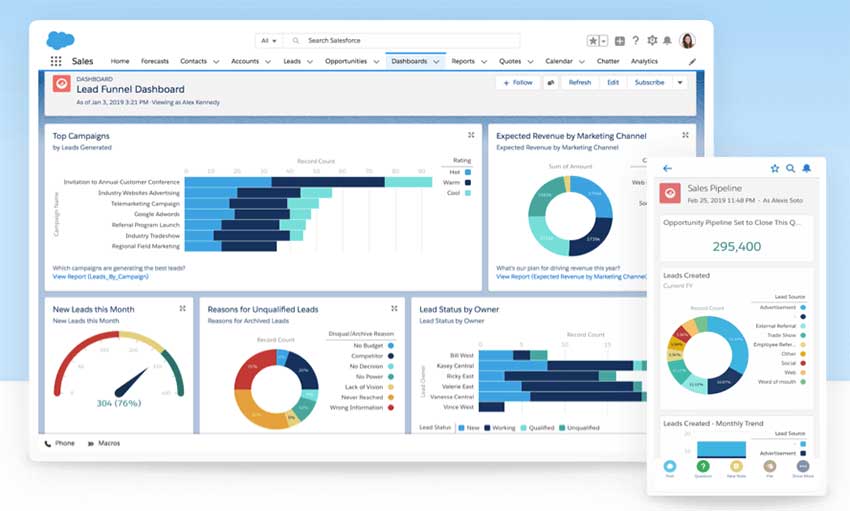Show:
How To Use Sales Intelligence Tools To Close Deals Like Clockwork?
In the fast-paced world of sales, the ability to swiftly close deals is not just a skill but an art form. The modern sales landscape is adorned with numerous challenges, from fierce competition to increasingly discerning customers.

Amidst this, sales intelligence tools have emerged as the linchpin, enabling sales professionals to navigate through the complex terrains of deal closures with finesse and precision. But how does one leverage these tools to ensure that deals are not just closed but sealed like clockwork? Let’s delve into the intricate world of sales intelligence.
Understanding Sales Intelligence
Sales intelligence refers to the collection, analysis, and application of data that assists salespeople in making informed decisions. It encompasses a wide array of data points, including customer behavior, buying patterns, and market trends. Sales intelligence tools, therefore, serve as a repository and processor of this data, transforming raw information into actionable insights.
The Symbiosis of Data & Strategy
Imagine walking into a battlefield with a blindfold. That’s akin to approaching sales without data. Intelligence tools remove this blindfold, providing a clear view of the customer’s wants, needs, and pain points.
They enable sales professionals to tailor their strategies, ensuring that every pitch, every communication, and every proposal is not just heard but resonates.
1. Customer Profiling: The Blueprint of Sales
Customer profiling involves creating a comprehensive image of your target audience, understanding their demographics, psychographics, and buying behaviors.
Sales intelligence tools facilitate this by aggregating data from various sources, providing a 360-degree view of the customer. This enables sales professionals to craft pitches that are not generic but personalized, speaking directly to the customer’s needs and aspirations.
There are plenty of sales lead databases to help you get started with this. While Apollo remains dominant, there are currently better companies than Apollo that offer this service, such as Lead411 and ZoomInfo, among others.
2. Predictive Analytics: Forecasting Success
Predictive analytics within sales tools allows salespeople to forecast trends, understand market shifts, and predict customer behavior. By analyzing historical data, these tools can predict which leads are most likely to convert, enabling sales professionals to prioritize their efforts and resources effectively.
3. Competitive Analysis: Staying Ahead of The Curve
Navigating through the competitive landscape requires not just understanding but outmaneuvering your competition. Sales intelligence tools delve deep into competitors’ operational frameworks, dissecting their strategies, customer feedback, and market positioning.
This crucial data becomes the bedrock upon which sales teams build strategies that not only counteract competitors’ offerings but also highlight unique selling propositions, ensuring their offerings don’t just match but surpass competitors in appealing to the target demographic.
4. Automation: Streamlining Success
Time is of the essence in sales. Sales intelligence tools automate numerous processes such as data collection, follow-up emails, and lead scoring, enabling sales professionals to focus on what they do best – selling, that is sell, and focus on the sales funnel.

This not only enhances efficiency but also ensures that no potential lead slips through the cracks. This symbiosis between technology and strategy ensures that every interaction is timely, relevant, and impactful, thereby elevating the probability of conversion and fortifying customer relationships.
5. Integration: Creating A Cohesive Sales Ecosystem
Sales intelligence tools can be integrated with various other tools such as CRM systems, email marketing platforms, and social media. This creates a cohesive ecosystem where data flows seamlessly across platforms, ensuring that every piece of information is captured, analyzed, and utilized effectively.
6. Real-time Insights: Making Informed Decisions
The ability to make informed decisions in real-time can be the difference between closing a deal and losing it. Sales intelligence tools provide real-time insights into customer behavior, enabling sales professionals to modify their strategies on the fly, ensuring that they are always a step ahead.
7. Collaboration: Unifying Efforts
Sales intelligence tools foster a culture of collaborative synergy, amalgamating the diverse skills and insights of each team member into a cohesive strategy. By centralizing data and insights, these tools obliterate silos, ensuring that knowledge permeates every echelon of the sales team.
This not only amplifies the strategic depth but also fortifies the team against potential oversights, ensuring that the strategy devised is both robust and holistic, navigating through the multifaceted dynamics of the sales journey.
Closing Thoughts
In the grand scheme of sales, intelligence tools are not just facilitators but catalysts, propelling sales strategies towards success. They demystify the customer, unravel the competition, and streamline processes, ensuring that deals are not just closed but clinched with certainty and consistency.
In a world where data is abundant yet insights are scarce, sales intelligence tools bridge the gap, ensuring that every piece of data is not just collected but converted into actionable strategies. They ensure that sales professionals are not just closing deals but doing so in a manner that is systematic, strategic, and, above all, successful.

 Return to Previous Page
Return to Previous Page








